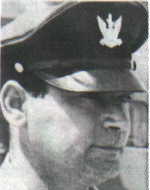Alon, Joseph (“Joe” Plachk)
Son of Friedel and Takla. He was born on July 25, 1929 in Kibbutz Ein Harod, and when he was two years old he returned with his family to the Czech Republic. Before the outbreak of World War II, when the Germans occupied Czechoslovakia, he moved to England, where he was adopted by a non-Jewish family, the Davidsons, and attended an excellent school. After the war he returned to Czechoslovakia to look for his parents and found out that they had been murdered by the Nazis. He remained there and continued his studies in a vocational school. When the time came, he enlisted in the Czech Army and took a pilot course, but there was always a yearning for his native country. Joseph sought contact with the country and at the beginning of 1949 managed to immigrate to Israel. At the beginning of March 1949, shortly after his arrival, he enlisted in the IDF and volunteered for the Israel Air Force, completing various courses: a meteorology course, a pilot course, Wing Commander, Head of Aviation Safety Branch, etc. He was sent to various studies abroad and successfully completed a command and staff school in England. The commanders’ assessments were always excellent: “The commander of a squadron of the best in the corps, honest, meticulous and efficient, with excellent data for progress.” “Stubborn, strict, demanding a lot of himself and others;” “A pilot who is above average, has not stopped his active flight since completing a pilot course, a good commander who invested great effort and thought in the three squadrons he commanded.” Even when he was totally attached to the corps, he did not neglect his family and daughters, and was a devoted and incredibly loyal family man. Joseph studied goldsmithing as a hobby and did many fine metal works. He also liked painting and sports. In 1970, he was appointed as an adjunct to the IDF in Washington, DC During his tenure, Yosef was closely associated with both the Pentagon and the Jewish community, lecturing to youth and students and helping the UJA. In his memory he planted a forest, with the contributions of his friends in the United States and in Israel, near Kibbutz Lahav in the Negev; Be’er Sheva is named after him; In Kibbutz Lahav, a regional studies center was established in his memory
